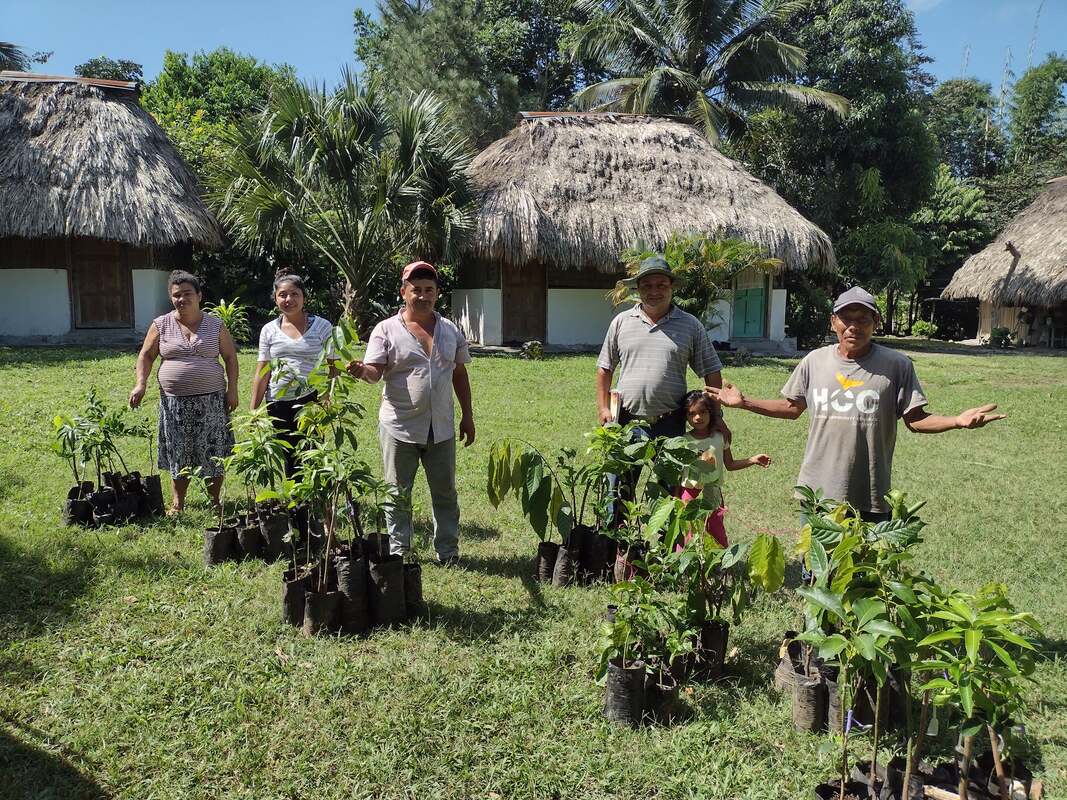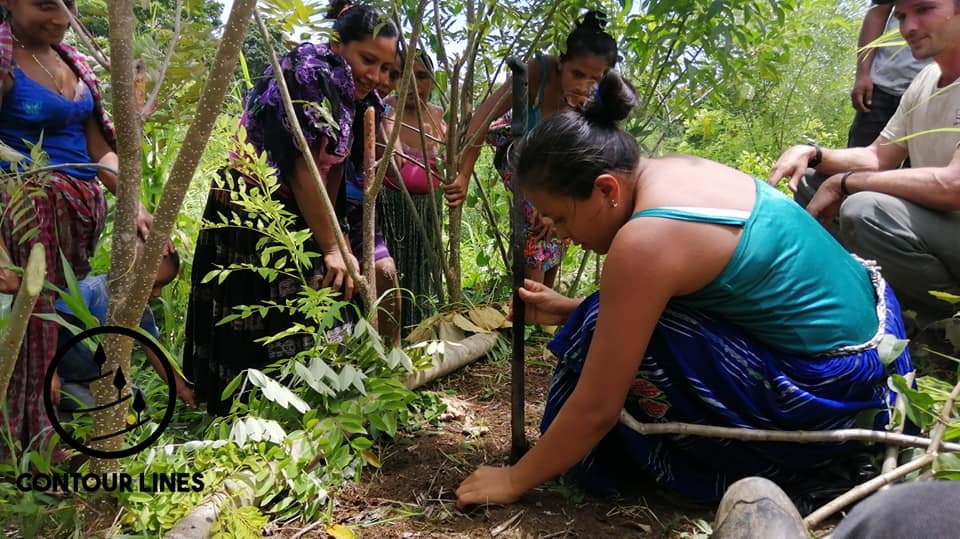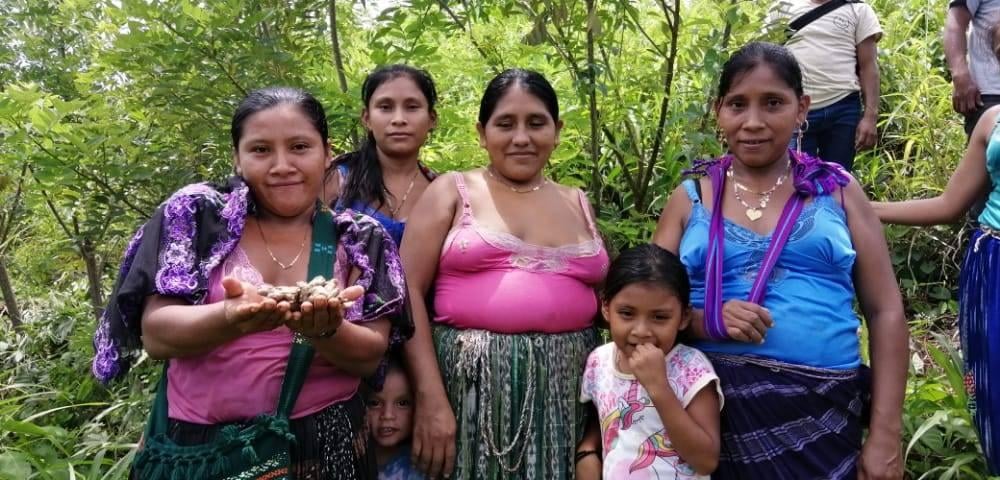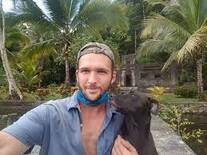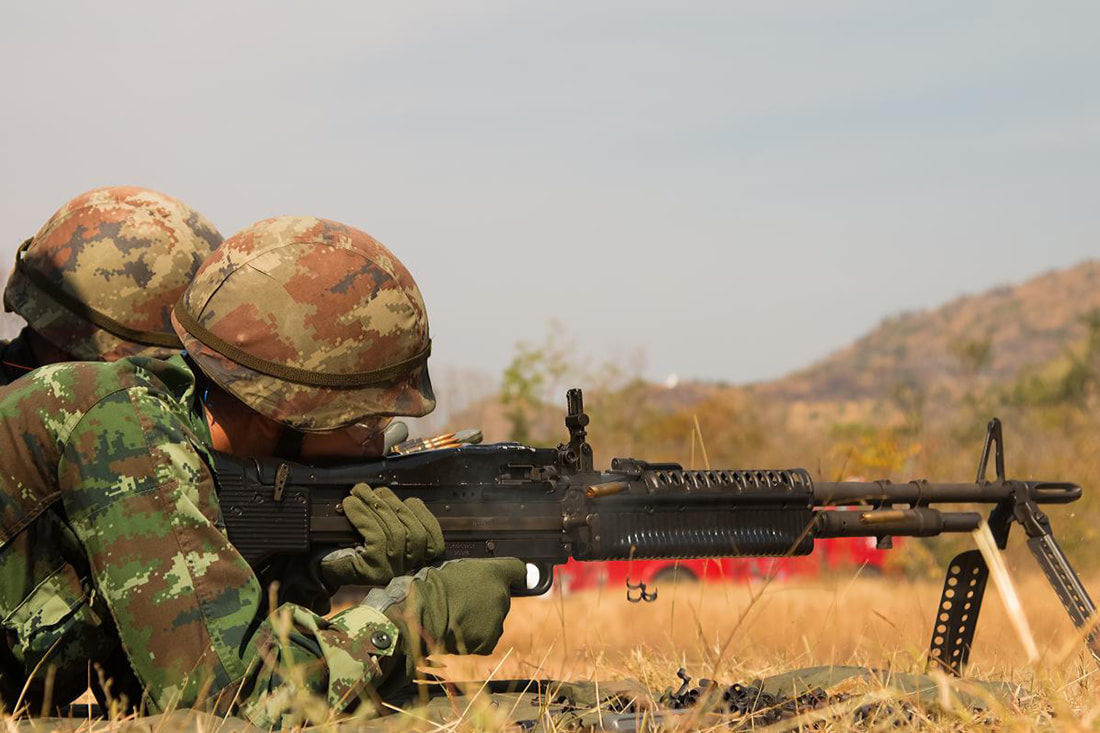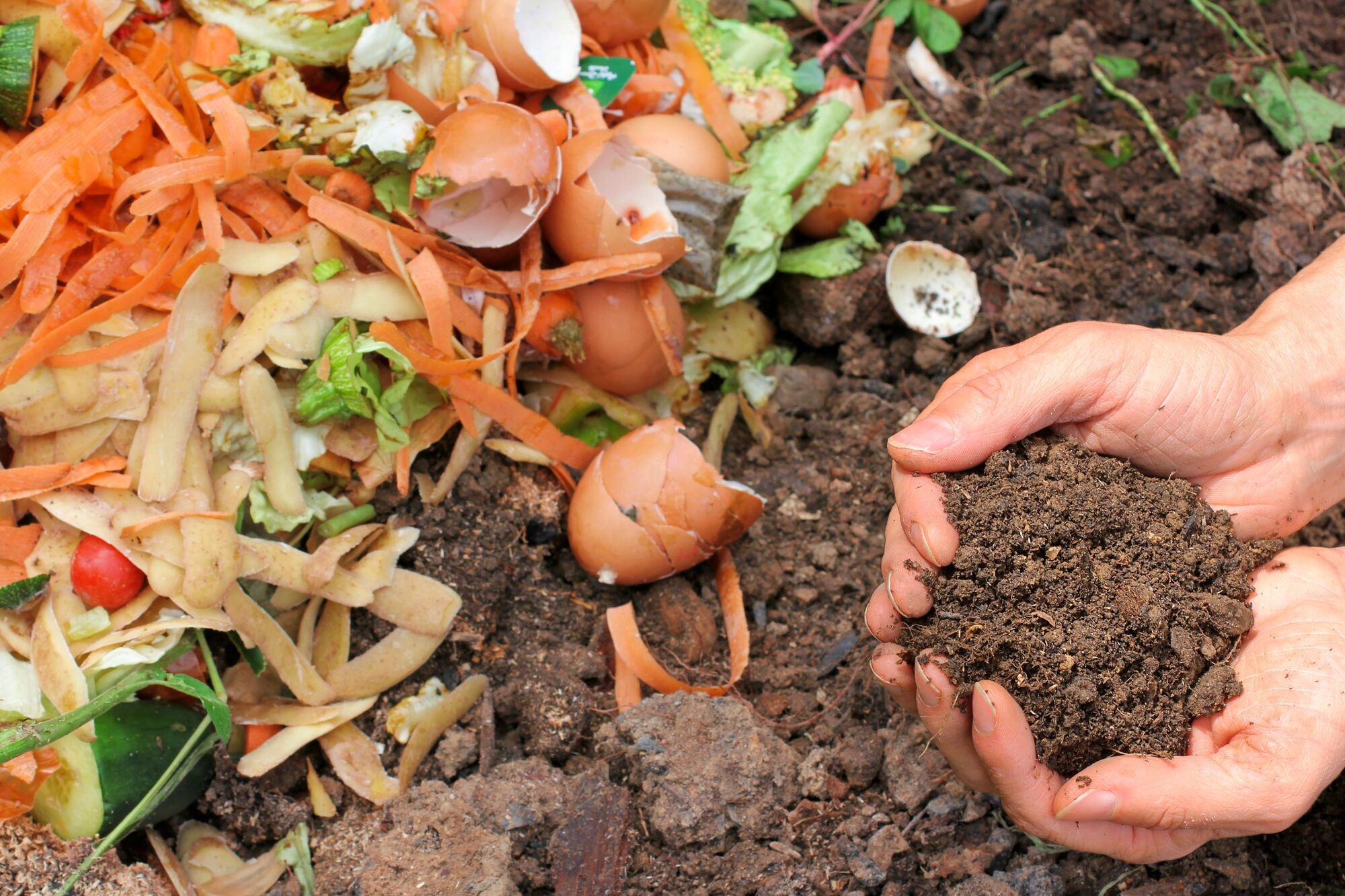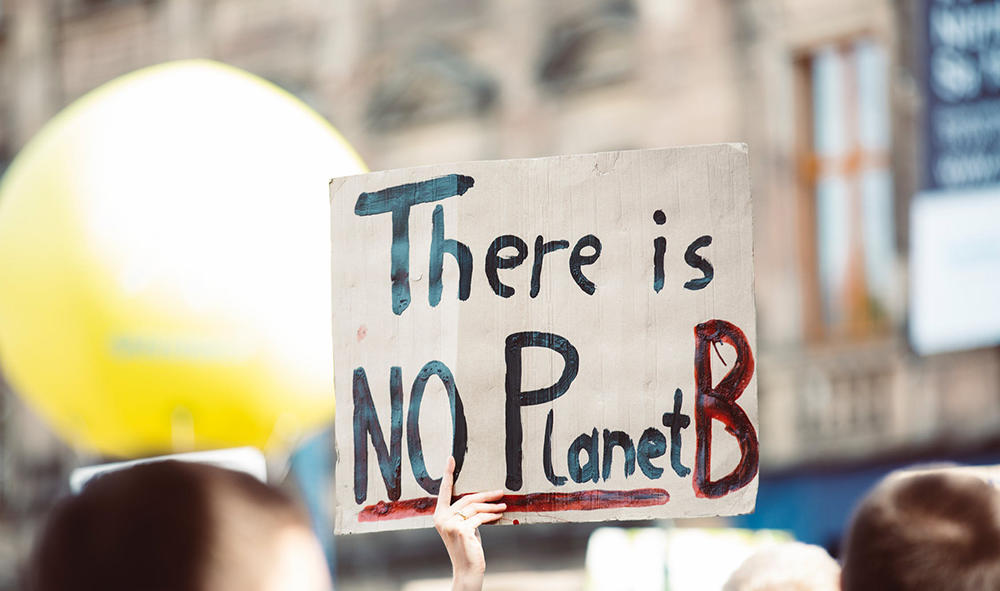Interview with Sean Dixon-Sullivan , Contour Lines / 10 minute read
Contour Lines are rows of trees planted level along a hill’s contour. They intersect rainwater runoff, trap eroding soil, and build terraces of fertility over time.
A nonprofit in rural Guatemala, Contour Lines (named after the soil conservation method) is working with communities to reforest their homes and make their land more resilient.
A nonprofit in rural Guatemala, Contour Lines (named after the soil conservation method) is working with communities to reforest their homes and make their land more resilient.
Families in Yaxha village receive their first fruit trees.
How is climate change impacting Guatemala and the communities you work with?
"Climate change greatly impacts the communities we work with who are primarily subsistence farmers. The rainy seasons begin later, reducing the season available to grow and putting crops at risk, and weather is more erratic in general than in recent decades according to elders here. Also major storm events like hurricanes Eta and Iota of the record-breaking hurricane season of 2020 destroyed many crops, and also flooded many of the riverside communities where we work. Unfortunately such impacts of climate change may increase the existing problem of younger generations leaving their agricultural communities for city jobs, (as ag is seen as even less stable) or worse, making the long and dangerous trek through deserts to cross the southern US border."
"Climate change greatly impacts the communities we work with who are primarily subsistence farmers. The rainy seasons begin later, reducing the season available to grow and putting crops at risk, and weather is more erratic in general than in recent decades according to elders here. Also major storm events like hurricanes Eta and Iota of the record-breaking hurricane season of 2020 destroyed many crops, and also flooded many of the riverside communities where we work. Unfortunately such impacts of climate change may increase the existing problem of younger generations leaving their agricultural communities for city jobs, (as ag is seen as even less stable) or worse, making the long and dangerous trek through deserts to cross the southern US border."
Training day at Naranjal; women plant ginger along the Contour Lines, already forming terraces from accumulated soil.
At World Centric, we see an important element of community resiliency being the ability for people to choose to remain in place, and not be forced to leave their homes due to the changing climate, poverty, or conflict. How do you think about your work and how it intersects with immigration?
"Our agroforestry work directly builds resilience in the 100+ communities we work with. On the land-use level, an agroforestry system is more resistant to drought with its deep perennial roots, as well as resistant to storm events like floods and winds that often destroy annuals. These systems also build economic resilience through more valuable harvests compared to subsistence corn, as well as additional income value-added products, seed sales and ecotourism which participating communities benefit from. All of these benefits help reduce migration. This in fact was the subject of a recent video, where we interviewed some of the earlier participants in their thoughts on migration."
"Our agroforestry work directly builds resilience in the 100+ communities we work with. On the land-use level, an agroforestry system is more resistant to drought with its deep perennial roots, as well as resistant to storm events like floods and winds that often destroy annuals. These systems also build economic resilience through more valuable harvests compared to subsistence corn, as well as additional income value-added products, seed sales and ecotourism which participating communities benefit from. All of these benefits help reduce migration. This in fact was the subject of a recent video, where we interviewed some of the earlier participants in their thoughts on migration."
Families of Naranjal receive ginger seeds.
Can you share a story that highlights an example of how your work impacts the ability for people to remain in place?
"An example of agroforestry systems being resilient to weather events would be during the 2020 hurricane season, where strong winds and floods destroyed the corn crops of many communities. However the agroforestry systems were better protected, for example a citrus plantation in La Pintada Village was flooded for over one month, but no trees were lost! and continue to produce to this day. An example on the economic side is our new cacao supply chain, where Contour Lines has begun shipping cacao from El Cedro village to buyers in Lake Atitlan for 2.5x the market value due to premiums for being regenerative and produced by communities."
"An example of agroforestry systems being resilient to weather events would be during the 2020 hurricane season, where strong winds and floods destroyed the corn crops of many communities. However the agroforestry systems were better protected, for example a citrus plantation in La Pintada Village was flooded for over one month, but no trees were lost! and continue to produce to this day. An example on the economic side is our new cacao supply chain, where Contour Lines has begun shipping cacao from El Cedro village to buyers in Lake Atitlan for 2.5x the market value due to premiums for being regenerative and produced by communities."
Sean Dixon-Sullivan
Founder, Contour Lines
Founder, Contour Lines
